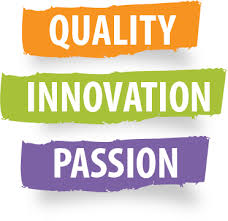 Europe is facing historical challenges. Beside the difficult economic climate, the global economic competitive context changed in 20 years-time as never before. The only way to tackle these challenges is by promoting human capital, developing the knowledge society, and striving for innovation, responsibility and entrepreneurship. Digitalization within the entire education sector is seen as a catalyst to foster the capacity to promote, support and drive educational professionals’, learners’ and organizations’ abilities to develop the competences they need for an ever changing and potentially uncertain future with growing risks.
Europe is facing historical challenges. Beside the difficult economic climate, the global economic competitive context changed in 20 years-time as never before. The only way to tackle these challenges is by promoting human capital, developing the knowledge society, and striving for innovation, responsibility and entrepreneurship. Digitalization within the entire education sector is seen as a catalyst to foster the capacity to promote, support and drive educational professionals’, learners’ and organizations’ abilities to develop the competences they need for an ever changing and potentially uncertain future with growing risks.
However, open, online and e-learning in Europe, as well as the concept of digitalization in education are still not perceived with the same credibility as traditional modes of learning. Although a lot of progress has been made to bring digital technologies into the educational context in all European countries, a renewed debate about quality on open, online and e-learning , sharing of good practices and trust into innovation and transformation through the use of digital technologies in education is needed today.
Within the community of the European Distance and E-Learning Network (EDEN) we have had great discussions during the last decade in which way we need to understand, define and operate learning under the light of the ever progressing digital transformation. It becomes more and more visible that digital transformation needs a clear vision and strong leadership to bring together the innovation power of grassroute initiatives and organizational structures and strategies into a holistic model of organizational change. Also in other associations this question is burning. Since 2016 I am Vice-president of the European Association for Institutes of Higher Education, and in particular those higher education institutions which we represent in this network and which are focussing on employability and integration of academic education and the world of work, are resiling with the new demands from the workplace in the field of digitalization needs.
I am therefore very happy that we have created a special Interest group within the EDEN Network which is focussing on Quality of technology enhanced learning. It will help to understand how the educational experience can truly be enhanced, how educational organizations’ capacity to do so can be developed and how policies around digital transformation can be shaped on individual, institutional as well as national and European level.
An issue on which I think we need to focus in particular is the fact that there still is a big gap between the desired policy objectives and expressed rethorics on European levels and the reality in the organizations operation, curricula, teaching traditions and learning scenarios. This is true despite the fact that there are more and more digital materials, support activities, infrastructure investments and experiences with this new mode of teaching and learning available. It becomes clear that we do not have a technology deficit but that we have a deficit in embracing new learning cultures. therefore I would suggest that it is important to shape new cultures of higher education. A clear leadership task.
I am happy that we have focussed on these issues with the creation of the special interest group in EDEN. And in EURASHE with the group on lifelong learning and in other European networks, like EUA and ENQA as well. We need to launch a series on activities in which leaders of institutions can turn to and receive orientation, training and information.

Du muss angemeldet sein, um einen Kommentar zu veröffentlichen.